Water Heater Flood San Diego CA
A water heater flood can be one of the most sudden and damaging events that can occur in a home. The resulting destruction of floors, walls, and personal belongings can be devastating.
Fortunately, there are steps you can take to protect your home from such a catastrophe. By understanding the causes of water heater floods, implementing preventive measures, and having access to emergency restoration services, you can minimize the risks and ensure a swift recovery if an incident occurs.
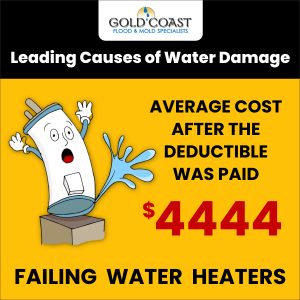
Common Causes of Water Heater Floods
While weather-related factors can contribute to flooding, one of the most frequent causes of house floods is right inside your home: the water heater. Over time, water heaters can develop slow leaks that often go unnoticed until significant damage occurs. Regular inspections of your water heater are crucial to identify any signs of leakage or deterioration. Avoid concealing your water heater behind barriers or in hard-to-reach areas, as this can make routine checks and maintenance challenging.
Factors Contributing to Water Heater Floods
Temperature fluctuations play a significant role in weakening water heater lines, making them susceptible to failure. The cold water supply line and the hot water discharge line are particularly prone to developing leaks or bursts. To minimize the risk, it’s important to avoid placing your water heater in areas that experience extreme temperature changes. Keep it in a location where the temperature remains relatively stable throughout the year.
Another common cause of water heater leaks is sediment buildup inside the tank. Over time, minerals and debris can accumulate, leading to rust and compromised integrity. To prevent sediment-related issues, it’s crucial to perform regular maintenance. Annually draining and flushing the water heater helps remove accumulated sediment, preserving its performance and extending its lifespan.
Preventing Water Heater Floods
Prevention is key to avoiding the damaging consequences of a flooding water heater. Here are some essential preventive measures you can take:
- Regular Inspections: Schedule periodic inspections of your water heater to detect any signs of leakage, corrosion, or other issues. Look for water stains, dampness, or unusual odors around the unit.
- Maintenance: Follow the manufacturer’s guidelines for maintenance, which may include annual draining and flushing of the water heater to remove sediment buildup.
- Temperature Monitoring: Ensure that the temperature settings on your water heater are appropriate for your household’s needs and comply with safety recommendations. Avoid excessively high temperatures that can put additional stress on the unit.
- Proper Installation: Have your water heater installed by a qualified professional to ensure it meets safety codes and regulations. Improper installation can lead to leaks and other issues.
- Adequate Space: Allow sufficient clearance around the water heater to facilitate easy access for maintenance and inspections. Avoid placing any objects or materials that could obstruct airflow or pose a fire hazard.
Emergency Restoration Services
Despite taking preventive measures, unforeseen incidents can still occur. In the event of your water heater causing a flood, immediate action is crucial to minimize damage and initiate the restoration process promptly. Having access to reliable emergency flood restoration services is essential for a swift recovery. Experienced professionals can assess the extent of the damage, provide water extraction, drying, and restoration services, and help you restore your home to its pre-flood condition.
Frequently Asked Questions About Water Heater Floods
Q1: What should I do if my water heater floods?
A1: In case of a water heater flood, it is crucial to act swiftly. Start by turning off the power supply to the water heater to prevent any electrical hazards. Shut off the water supply valve to stop the flow of water. Next, contact a professional water damage restoration service to assess the extent of the damage and perform necessary repairs.
Q2: Will my insurance cover the damages caused by a flood?
A2: Most standard homeowner’s insurance policies cover water damage caused by sudden and accidental incidents, including water heater floods. However, coverage may vary, so it is important to review your policy and contact your insurance provider to understand the specifics of your coverage.
Q3: How can I prevent a water heater flood in my home?
A3: Regular maintenance is the key to preventing a flood caused by a water heater. Inspect your water heater periodically for signs of leaks, corrosion, or other issues. Drain and flush the water heater annually to remove sediment buildup. Keep the area around the water heater clean and clear of flammable materials. Consider replacing your water heater every 10 years or as recommended by the manufacturer to avoid potential failures.
Remember, consulting with a professional plumber can provide valuable insights and ensure the proper maintenance of your water heater to minimize the risk of a flood.
Learn how to shut off your water heater in case of an emergency
Restoring Peace of Mind
Any flood can be a disruptive and distressing event for any homeowner. By understanding the causes, implementing preventive measures, and having access to emergency restoration services, you can protect your home, safeguard your investment, and restore peace of mind. Regular inspections, maintenance, and prompt action are key to preventing and addressing water heater floods effectively. Remember to consult with professionals and reach out to reputable restoration services to ensure the best possible outcome in the event of a water heater flood.
Serving San Diego and San Diego County for over 35 years with quality work and great service. We also service these cities – Chula Vista, El Cajon, La Mesa, Spring Valley, and Lakeside. Poway, Ramona, Alpine, Julian, Santee, Coronado, Imperial Beach, Pacific Beach, La Jolla, University City, Tierrasanta, Rancho Penasquitos, Rancho Bernardo, Rancho Santa Fe, Encinitas, Del Mar, Solana Beach, Leucadia, Sorrento Valley, Miramar, Mira Mesa, Scripps Ranch, Vista, Carlsbad, Oceanside, San Marcos, Lemon Grove, Bonita, Valley Center, Borrego Springs, Escondido, Fairbanks Ranch, Rancho San Diego 4S Ranch, Sabre Springs and Pine Valley.

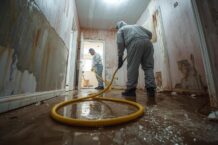
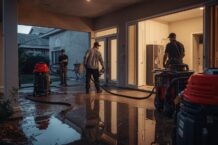
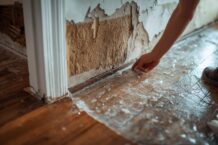
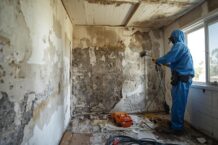
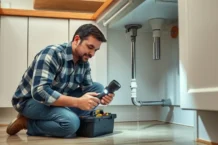



Follow Us!